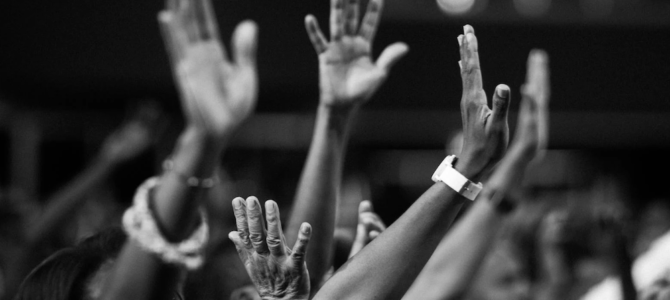
Everyone is condemning racism. There is no overt pro-racism side to speak of, and most accusations of racism are denied with apparent sincerity. But we do not all mean the same thing by it.
We may agree that racism is a perennial poison in our nation, as evidenced by persistent racial disparities, particularly between black and white Americans, but we disagree over what racism is, what sustains it, and how to respond to it.
Not all anti-racism is created equal, and the differences between approaches are more than questions of tactics. It is not just that radicals and crooks have used protests as cover for rioting and looting, or that people are bitter at experts and officials who promoted coronavirus lockdowns only to encourage protesters to flout the rules. Rather, fundamental philosophical and even religious differences are at work.
This is in large part because the anti-racism promoted by critical race theory and related social justice approaches has become increasingly religious, even cult-like. From iconoclasm to rituals of penance and humiliation, this anti-racism includes strong religious elements. These arise from a pseudo-theology that opposes Christianity. Thus, it is imperative that Christians fight the sin of racism both personally and socially, while also ensuring that when we address racism, we do so from a Christian perspective.
Racism Is Antithetical to Christianity
From a Christian perspective, racist ideas are heretical because they deny the brotherhood of man and therefore the fatherhood of God. Racism thus implicitly rejects the redeeming work of Jesus that restores us as children of God.
Furthermore, it repudiates the fellowship of believers through the Holy Spirit, in which we see a glimpse of a heavenly home that includes those from every tribe and tongue and nation. Racism is a heresy directed at each person of the Trinity and against God’s work in the human race from creation to eschaton. It lies about who we are, who God is, and how we relate to each other and to God.
These false beliefs arise from human sinfulness, and in turn encourage more of it. Modern Western racism arose as an expression of, and justification for, sins including greed and pride. Its social and legal codification sanctioned these wrongs and provided incentives for further evils.
Christians should not be surprised that the harm inflicted by centuries of systemic, socially sanctioned sin has continued even after its overt social and legal supports were removed. Scripture and the great teachers of the church have told us of sin’s persistence in our world, relationships, and hearts.
Critical Race Theory Is Itself a Religion
Insofar as Christianity recognizes that human sinfulness infects us both socially and individually, and that failure to address these social aspects can be a sin of omission, it superficially converges with aspects of critical theory. Certainly St. Augustine has taught us as much as critical theory ever could of the sinful corruption of human motives and the capacity for human society and institutions to inculcate evil.
However, Christianity and critical theory have irreconcilable views of the source of evil. For Christians, evil is first and foremost the product of our rebellion against God and our selfishness — sin’s social aspects add to, but do not cause, the corruption intrinsic to our hearts.
In contrast, critical theory sees evil as the product of power differentials between socially constructed identity groups. Critical theory is in many ways a heretical reformulation of the doctrine of original sin, although it lacks a catchy summation like “In Adam’s fall we sinned all.”
Critical theory’s version of original sin is the inheritance of being born into social systems of oppression. In Christianity, the guilt of original sin applies equally to all; in critical theory, it is doled out by degrees, depending on how many oppressive or oppressed groups one belongs to.
Thus, critical race theory teaches that whites are intrinsically guilty of oppressing blacks; being born white makes one a participant in racial oppression. Furthermore, denying this inheritance of white privilege and guilt is itself a furtherance and reinforcement of white privilege and racial oppression — there is none so sinful as the man who claims to be without sin.
In Christianity, what would be guilt for sins of omission (failings to sufficiently perceive and oppose systematized wrongs) becomes in critical theory an application of collective guilt. All those who belong to an oppressive group share the guilt of its sins of commission. Thus, families may be punished for the sins of one member. Entire groups are told they are complicit in past sins.
Without Christianity, There Is No Hope for Reconciliation
These teachings on group identity mean that critical race theory offers no real hope for racial reconciliation. As Joshua Mitchell notes in an insightful essay, without Christianity we may face a return to the pagan world of one people venting their cathartic rage upon another.
At best, we might hope for a pagan-Christian hybrid in which representatives of one people defuse rage via ritual prostration, taking upon themselves the sins of their people. Witness, then, the spectacle of white people performatively kneeling before black people.
But according to the teachings of critical theory, this ritual abasement cannot offer real forgiveness or reconciliation. Systems of oppression, with their warring identities of oppressor and oppressed, will be with us always. No one can speak for all of the oppressed to offer forgiveness to the oppressors.
There will only be the endless, hopeless struggle against sin, with guilt that cannot be atoned for. The wronged can never receive their due recompense, and many of the guilty are beyond punishment. In the end, critical race theory leads to the sins of despair and rage.
Christianity shares some of this assessment of human striving. It realistically recognizes that this world is imperfect and unjust, and will remain so despite our best efforts. Thus, Christians may reasonably differ on how to improve racial justice.
For example, two believers might agree that our public education system disproportionately fails black students, but disagree over how to address it — one might support weakening teachers unions and expanding voucher programs, while the other might oppose those proposals and support others. Even when agreement and improvement are possible, this world remains beset by sin.
The real hope Christianity offers amid human sin and suffering is not that of our own attempts to improve matters, but the transformative grace of God available through Jesus Christ. This offers the forgiveness and love we all need. In contrast to critical theory, Christianity provides an identity as children of God that transcends our differences. It is thus that the sons of slaves and the sons of slaveowners can sit together at the table of brotherhood.









